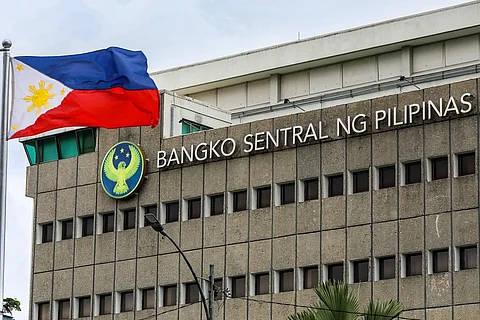
- NEWS
- the EDIT
- COMMENTARY
- BUSINESS
- LIFE
- SHOW
- ACTION
- GLOBAL GOALS
- SNAPS
- DYARYO TIRADA
- MORE

The Bangko Sentral ng Pilipinas (BSP) was urged yesterday to monitor the possible creation of illegal payment platforms as alternative channels following its ban on in-app gambling games from e-wallets.
Cagayan de Oro Rep. Rufus Rodriguez issued the call on Friday following the BSP’s directive to e-wallets, such as GCash and PayMaya, to remove online gambling apps from their systems.
The move came after lawmakers raised concerns that the apps made gambling more accessible to the general public, including the youth, and making them harder to regulate.
E-wallet providers have been given only 48 hours to comply with the order starting Thursday. By Saturday, no gambling platforms shall be accessible through e-wallets.
Rodriguez, however, expressed doubt that cutting the links would completely disrupt online gambling operations, suggesting that operators could circumvent the ban through other channels and resort to illegal or underground operations like what happened to the banned e-sabong.
He said the BSP could collaborate with the Department of Information and Communications Technology to close the possible loopholes.
“Let us be vigilant against online gambling and e-sabong operators who continue to prey on our people for more profit. Let us not add to families broken and lives lost because of gambling addiction,” Rodriguez said.
BSP asked to monitor transfers
The seasoned lawmaker also urged the BSP to monitor money transfers from bettors made through the banking system and other financial intermediaries such as pawnshops.
Pagcor chairman and CEO Alejandro Tengco earlier dismissed the idea of totally banning e-gambling sites, citing the advanced technology. He said that authorities are only able to monitor 45 to 50 percent of online gaming activity, and the rest operate in a digital grey zone, much of it run by offshore syndicates targeting Filipino players.
Tengco also warned that a total ban would drive gambling operations deeper underground and rob the government of much-needed revenue.
In 2024 alone, Pagcor generated P50 billion from license fees paid by operators, on top of payments to the Bureau of Internal Revenue. He said one major gaming firm alone accounted for P30 to P40 billion.
Critics of online gambling, however, argued that no amount of revenue can compensate for the social ills and ripple effects caused by online gambling on the lives of Filipinos who are addicted to it.
At present, several bills calling for the total ban of all forms of gambling, including online sabong, have continued to gain momentum in Congress.
